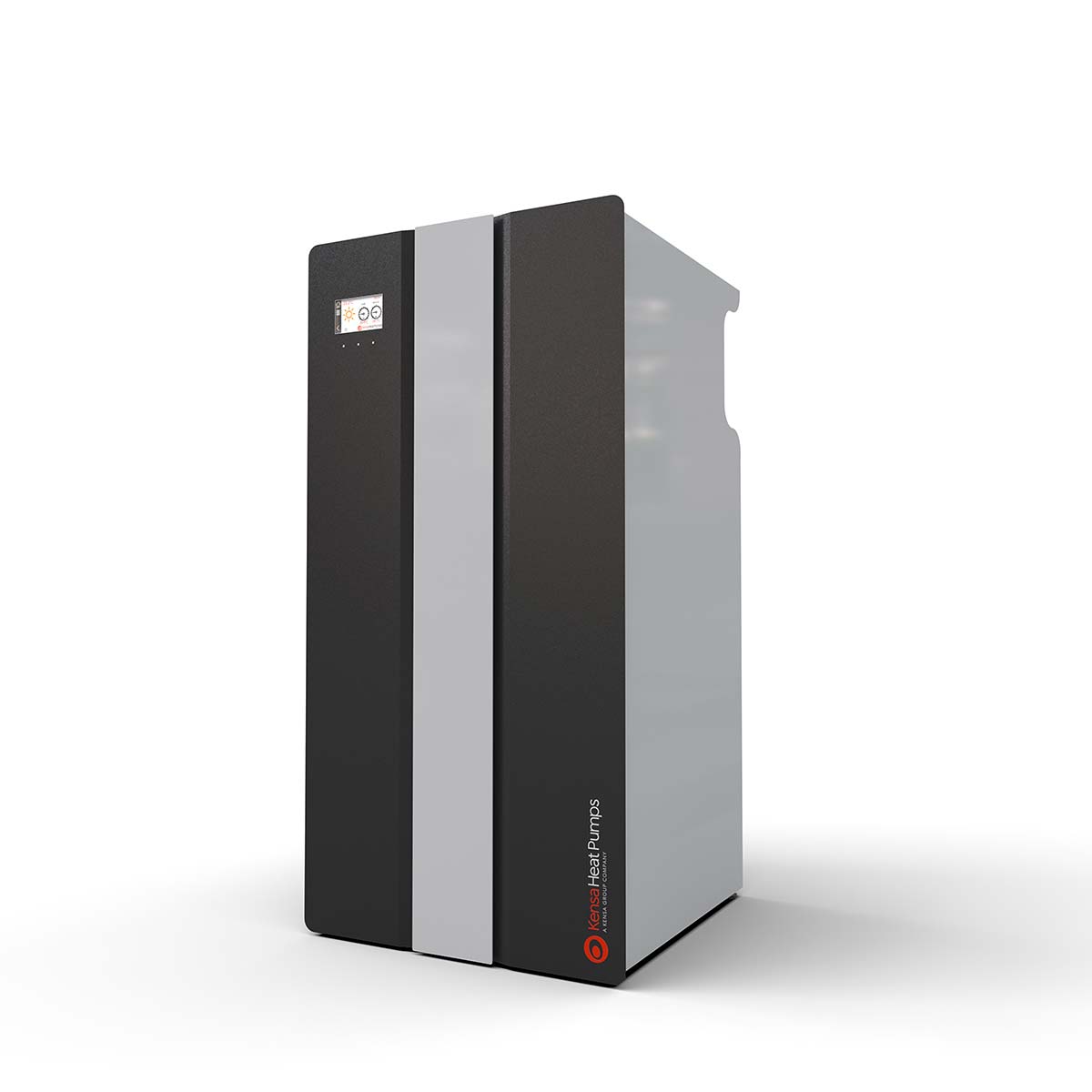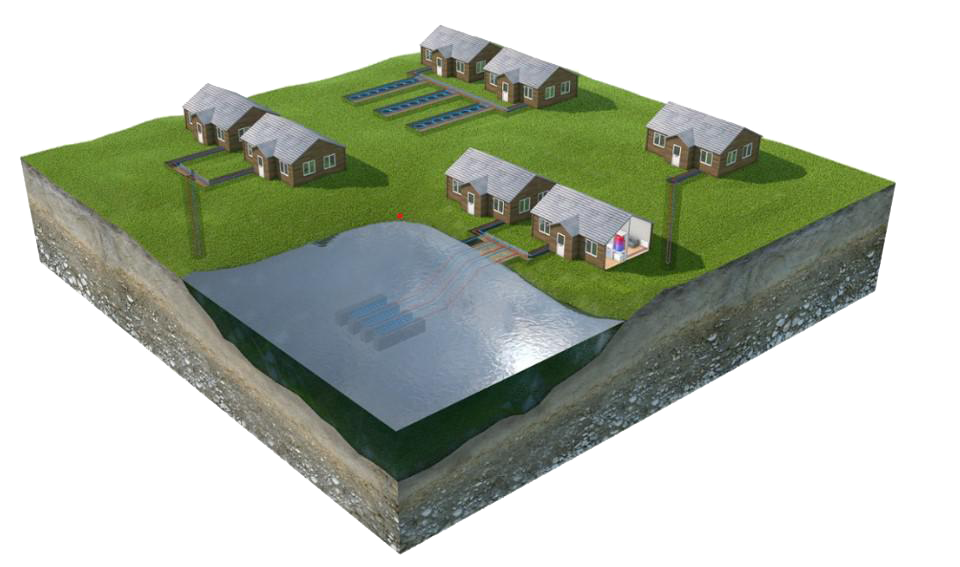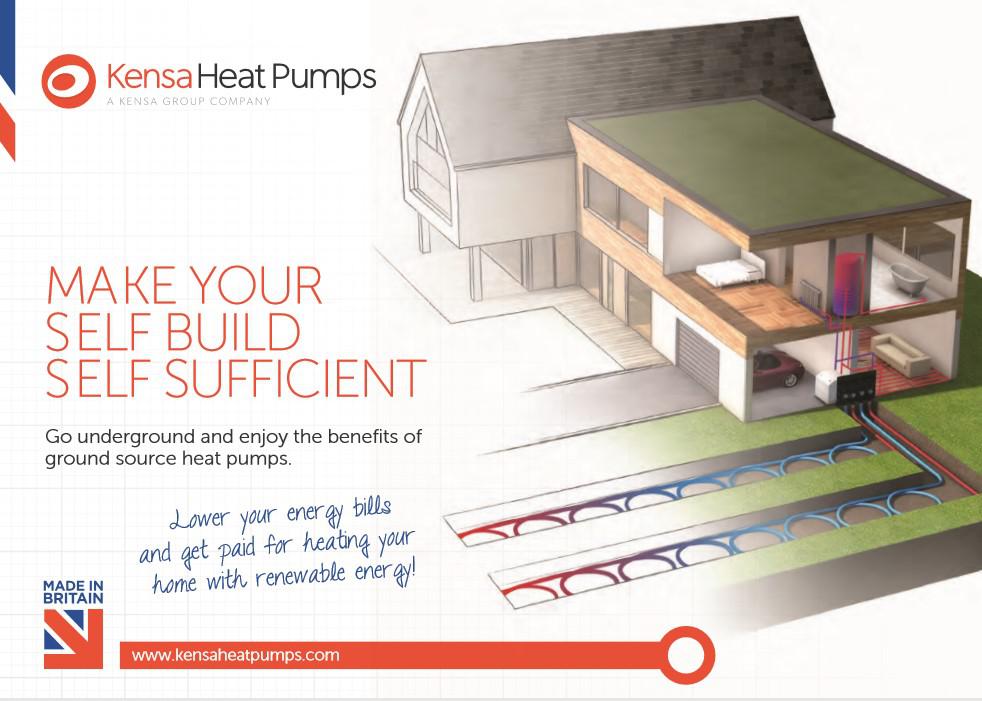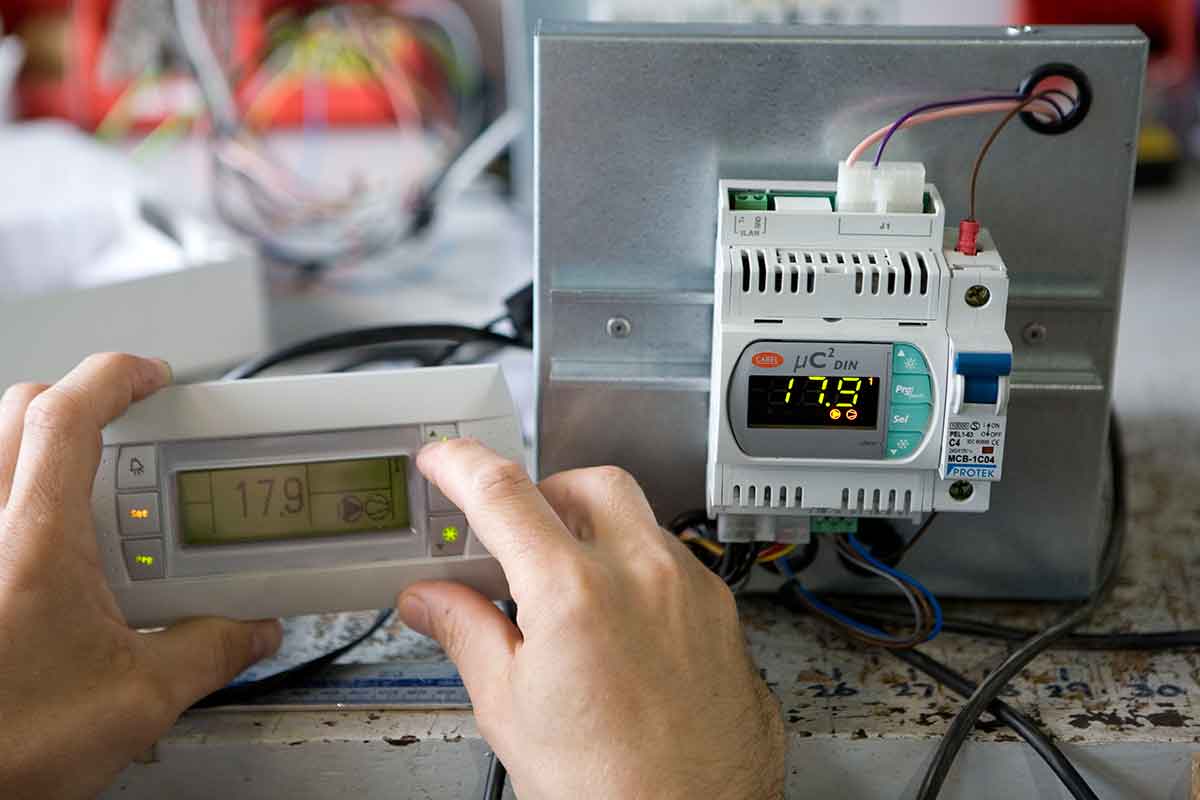The basic principle is as simple as it is brilliant; taking the free energy that exists in the ground outside and converting this energy into heating your home.
This heat can then be used to heat radiators, underfloor heating systems, or warm air convectors and hot water throughout your home.
For every 1kW of electricity fed into a Kensa ground source heat pump unit you could achieve 4kW of heating energy. A ground source heat pump extracts heat from the ground outside in the same way that a fridge extracts heat from its inside. The benefit of a ground source heat pump is that the ground remains at an almost constant 8 – 12 degrees Celsius all your round.
Heat pumps are particularly suitable for rural locations, whether on oil, LPG or direct electric, as huge savings can be obtained






